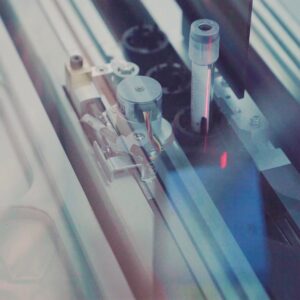Description
Micronutrient testing
Micronutrients are the vitamins, minerals, antioxidants and chemicals our bodies use to perform every function necessary to survive and thrive. If these become deficient, we get sick. Every accepted cause of disease – inflammation, low immunity, poor gut health, hormone disruptions, environmental toxins and genetic expression – can be traced back to a micronutrient deficiency
CBC with Diff
A complete blood count (CBC) is a commonly performed and routine blood test. A CBC is used to help detect a variety of disorders including infections, anemia and diseases of the immune system.
CMP
A comprehensive metabolic panel (CMP) is often done as part of a routine exam. It provides important information about your body’s chemical balance and metabolism.
Heavy Metals
Heavy metals testing measures arsenic, lead and mercury levels in the blood. High levels of these metals in the body can cause multiple distressing symptoms inlcuding muscle pain, fatigue, headaches and gastric pain.
Inflammatory markers
This test measures the level of c-reactive protein (CRP) in your blood. CRP is a protein made by your liver in response to inflammation. CRP identifies and tags damaged tissues or invading microbes so the immune system can recognize and clear them away. CRP levels rise and fall depending on how much inflammation you have. Once the disturbance has been removed from the body, CRP levels drop back to normal. However, when there is chronic low-grade inflammation in the body, CRP levels remain above normal. Hs-CRP levels can help predict the future risk of cardiovascular disease. Lack of sleep, stress, smoking, unhealthy diet, and nutrient deficiency have all been associated with higher CRP levels.
Interleukin-6 helps regulate immune responses including modulating the balance of our gut bacteria. Imbalances in the gut microbiome is a main component in chronic inflammation and a dysregulated immune system. IL-6 testing will not give you a specific diagnosis it sounds the alarm for chronic inflammation and inflammatory disease.
Lipid panel
A lipid panel is a common blood test used to monitor your risk of cardiovascular disease. It measures the amount of fat molecules in your blood. Having too much fat (cholesterol and triglycerides) in your blood can damage blood vessels and arteries and increase your risk of cardiovascular diseases like heart attack and stroke.
Thyroid Panel
Many underlying thyroid problems don’t show up on standard labs because conventional medical doctors typically only run TSH – one marker of thyroid function. A full thyroid panel is a blood test that looks at a total of seven markers of thyroid function to give you the most accurate picture of your thyroid health.
Sex Hormones
We all need balanced levels of estrogen, progesterone, and testosterone to maintain optimal health. When these hormones are out of balance it can lead to symptoms including weight gain, anxiety, depression, mood disorders, infertility, acne, low sex drive and more.
24-hour Cortisol and DHEA
This test looks specifically at your stress hormone (cortisol) over the course of the day. Blood tests only give us a single snapshot of your cortisol levels, but a urine or saliva collection test gives us the ability to see how your cortisol levels are changing over a 24-hour period. This test is very helpful in patients with excessive fatigue, inflammatory conditions, hormone imbalance, weight issues, chronic illness and chronic stress.
GI-MAP
The Gastrointestinal Microbial Assay Plus is one of the most sought-after functional lab tests. The goal of this test is to give us a complete and comprehensive profile of your gut microbiome. The microbiome in our gut affects everything from our mood and brain health to our immune system and metabolism.
Galleri
The Galleri test is a multi-cancer early detection test detects more than 50 types of cancer through a simple blood draw. This tewsts looks at the DNA in your blood to determine if any of it may have come from cancer cells.
Index Elysium
This test allows you to discover your cumulative rate of aging and your biological age.
Understanding the results of this test can help you prioritize lifestyle changes that may help slow
biological aging.
FULL BODY MRI
A Full Body MRI looks at the body from head to find inflammation, cancers, or obstructive masses in the body. For example, in the head, the exam can show brain masses. In the neck, abnormalities in the lymph nodes or arthritis. In the chest, the exam can help identify a heart enlargement. This test also can help to find abnormalities in the abdomen, kidneys, liver, gall bladder, pancreas, uterus, disc herniations and joints.







